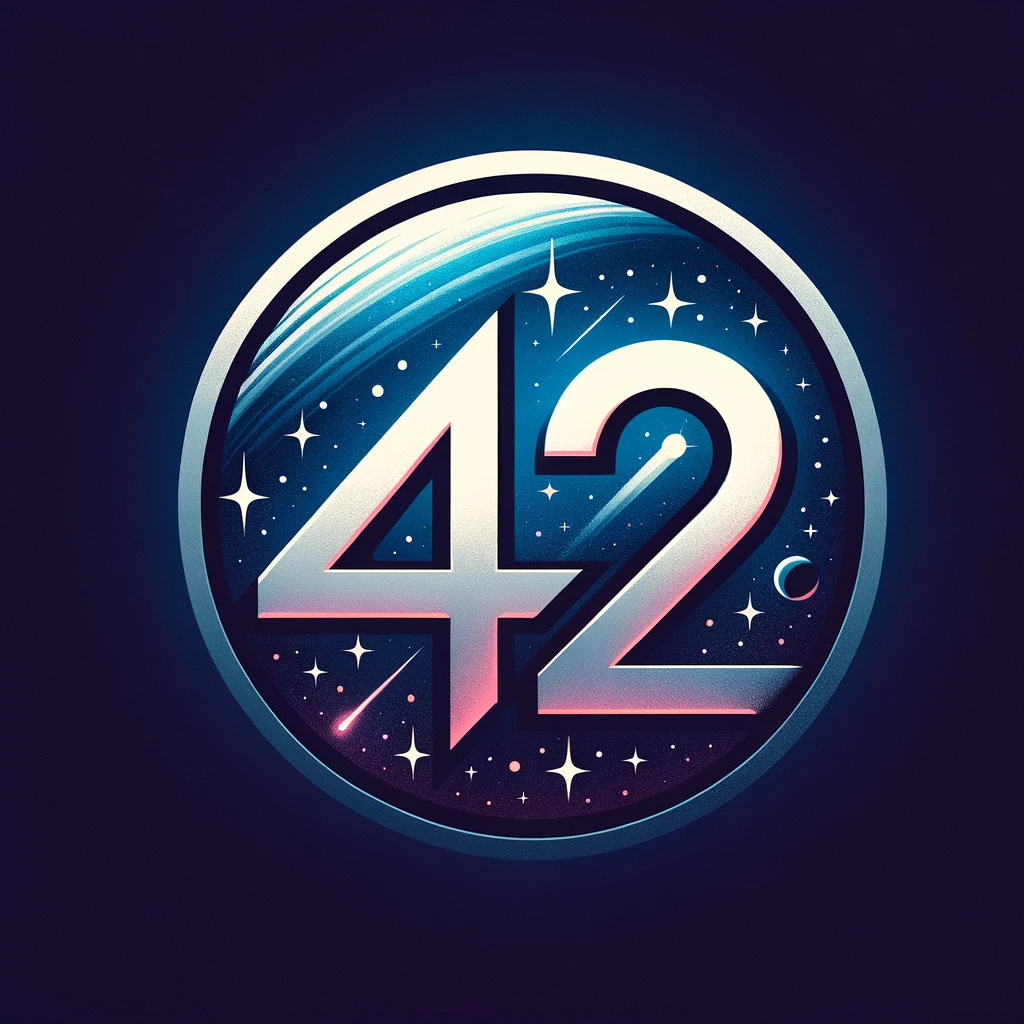“I don’t know.”
The trick is not to follow that with “therefore…”
It is what it is.
Selection bias.
If it didn’t exist, you wouldn’t be asking.
Indeed
There are probably countless universes, most of which are empty.
Only on the ones with the correct physics is life able to evolve.
And only on those this question can be asked.
I don’t.
I don’t care if it’s actually real because it feels real enough.
My man over here living their best life inside the matrix
Or Azathoth’s dream.
This exactly. Any greater insight or “enlightenment” doesn’t change anything and has no tangible benefits. Frankly attempting to find it would drive most anyone mad, so I don’t bother.
‘The chances of finding out what’s actually going on are so absurdly remote that the only thing to do is to say, “Hang the sense of it,” and keep yourself busy.’ -Douglas Adams
Awhile back, I decided that I needed to compartmentalize my areas of concerns into two overarching categories, things I can affect, and things I cannot. The latter category is not to be worried about, planned on, or otherwise take away from the things I am able to work on.
But theory is always fun, so I enjoy the concept of being a cosmic accident after many billions of other cosmic accidents that came before me. I am no more or less important than any other collection of atoms and will continue to exist in this configuration with minor changes until such time that I don’t. There doesn’t need to be a grand plan, or a special meaning behind any of this, but I can see the allure of believing that those accidents which led to us being something more.
After a bit of light reading and asking people who know more about philosophy than me, it seems I lean to absurdism. My take is that there is no reason for the existence of the universe or the evolution of humans. It was merely a series of random events that happened to end up the way it is. So it is what is is, I don’t let myself be bothered by it.
But that doesn’t mean life has no meaning per se. I’m already here, so I might as well make the most of it and live my life to the fullest. Someone correct me if I’m wrong, but that puts me in the category of absurdism, rather than existential nihilism.
If there is no reason then where does the meaning come from? Are they related?
It’s been many years since I read it but the ‘explanation’ in Lee Smolin’s ‘The Life of the Cosmos’ sounds the most convincing to me.
I’m the book, as far as I understood it, he suggests that theory of evolution applies on the biggest scales too. New universes form when a black hole collapses. Our Universe is just one of the universes that all have slightly changed values of the universal constants, like the way evolution works. There are many universal or physical constants in science, some of the most widely recognized being the speed of light in vacuum c, the gravitational constant G, the Planck constant h, the electric constant ε0, and the elementary charge e.
There is a very narrow range of these constants where ‘normal stuff’ of the universe like formation of matter can happen and heat death of the universe can be avoided. We just happen to be in the right universe with the perfectly balanced constants, in the right corner of it, at optimal distance to an optimally sized star, tilted at an optimal angle, with a moon at the right distance to help evolve life capable of developing a fediverse where we can mull this over.
Evolution, nothing special about it.
a black hole
assuming a thing into existence isn’t a satisfying answer
where did your black hole come from? another black hole?
might as well just claim its turtles all the way down
Something’s gotta be, may as well be this
On a more serious note, I have absolutely no basis for this whatsoever but I think it’s likely there’s an antimatter universe somewhere, and that that and our universe spontaneously came into existence from nothing. 0 = -1 + 1. I mean, it’s almost certainly nonsensical to the people who study this stuff but it’s a fun idea
I don’t know enough either, but a fun thought experiment is maybe we’re the anituniverse? There’s a lot more mass in the universe, than there should be, and we don’t know what it is. It’s just “dark matter” and “dark energy”.
Edit: please correct me if I’m wrong, I’ve only read pop science stuff like Hawkins books
There is a theorie where we could live inside a blackhole, maybe it’s the creation of it that we call the bigbang and it somehow explain why the universe is in expansion.
deleted by creator
It’s a metaphysical question.
Metaphysical cosmology is the branch of metaphysics that deals with the world as the totality of all phenomena in space and time. Historically, it formed a major part of the subject alongside ontology, though its role is more peripheral in contemporary philosophy. It has had a broad scope, and in many cases was founded in religion. The ancient Greeks drew no distinction between this use and their model for the cosmos. However, in modern times it addresses questions about the Universe which are beyond the scope of the physical sciences. It is distinguished from religious cosmology in that it approaches these questions using philosophical methods (e.g. dialectics).
Cosmogony deals specifically with the origin of the universe.
https://en.wikipedia.org/wiki/Why_there_is_anything_at_all
You can theorize about it, but for most theories, you aren’t likely going to be able to do much to test them.
We just don’t have any knowledge that we can get from the world that would let us make much of a call on it. Nothing we’re going to learn is likely going to let us provide an answer.
It also probably won’t provide much useful predictive power about the world, which is normally why we want to gain knowledge.
It’s like asking whether there are decoupled universes that we can never interact with, or why the specific physical properties of the universe are the way they are – we can maybe dig deeper within physics, come up with simpler or more-accurately-descriptive models but at some most-primitive level, that falls off of physics and into metaphysics. At that level, physics can only say “this is the way things work”, not why.
So I’m not going to worry too much about it. There are hard questions that we don’t know the answers to that are within the realm of testability, and that do have predictive power.
I just try to pay bills man
I think, therefore I am.
It’s a long lasting, constantly evolving, multi-versal fluke.
We can’t see, experience, or detect most of the universe — read: existence — let alone measure it. That pretty much means, to me anyway, we can’t explain it.
Explaining existence, then, is limited to explaining my own perception of existence. To be brief: The things that exist got here the same way we did and use the same materials and rules. Conscious beings stay in the universe by maintaining consciousness; for us, that generally means being alive, awake, and alert — in that order. Upon death, consciousness ends, or departs, or continues (no one knows) and our corporeal form goes back to existing as atoms in other states within the environment. Present existence, then, pregnant by the ghosts of all existences that has gone before and is carrying to term all existences that will exist after. It’s an endless, cyclical flow of atoms, energies, and absences. A crossroads of Space and Time culminating in experiential states and chains of causality. Billions of years in a blink.
Other conscious beings may operate or perceive differently. We can’t individuall confirm or know. That’s another of those rules.
That said, we only get to ride this existence thing for a short time. Build up your XP and use your one and only life doing good. Not necessarily well, but good.
Imagine standing outside of Time and Space and making a divine survey of the grand tapestry of the possible. It would look like math painted onto bubbles that glow from within, I think. That’s what Existence may be.
It’s likely nothing caused the universe to exist, since there’s no reason to think causality even exists outside the universe.
Where (or when) there is no causality, everything (every universe) can appear out of nothing.
Maybe we are both saying the same thing here with different phrasing ?











